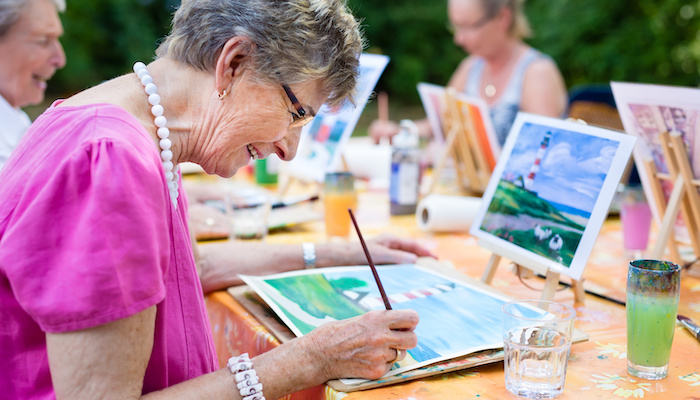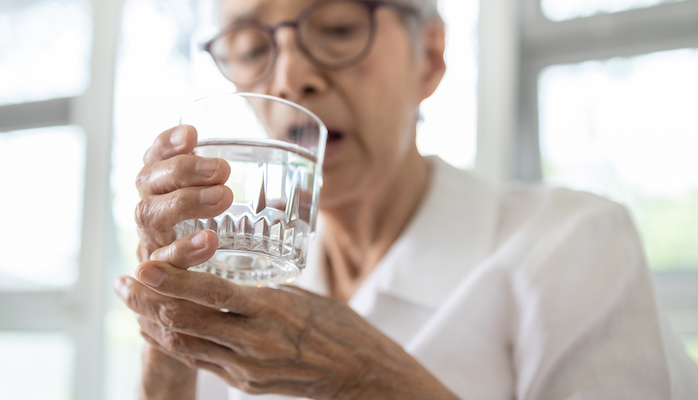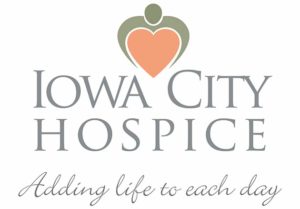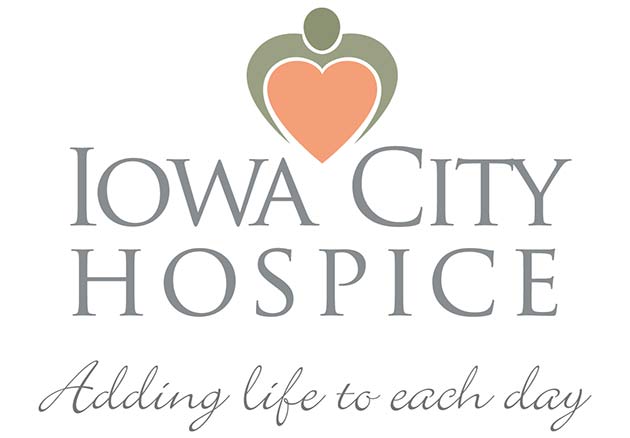Family Caregiver Connection
Helpful tips for family caregivers
July/August 2025
The physical and mental changes of aging can make it harder for older adults to engage in the activities that bring meaning to life. At the same time, regular cognitive and social stimulation play a big role in overall well-being. This month we look at how enrichment programs can help fulfill the need for purpose and engagement, as well as provide family caregivers with a much-needed break. Speaking of breaks, our second article walks through some of the in-home services for the ill that Medicare covers so family members don’t have to shoulder the caretaking all alone. We also continue our series on essential tremor, looking at different ways to help those with this condition, from adaptive tools to support groups. Additionally, in honor of National Grief Awareness Day on August 30th, we included an article on honoring lost loved ones through various traditions, including lighting a special candle called a Yahrzeit Candle a year after their passing.
- Honoring Memory with Light: The Gift of a Yahrzeit Candle
- What is an enrichment program?
- Medicare help at home
- Living with essential tremor
Honoring Memory with Light: The Gift of a Yahrzeit Candle

At Iowa City Hospice, we know that grief does not follow a schedule. The anniversary of a loved one’s death, whether quietly anticipated or unexpectedly emotional, can bring a flood of memories. To honor this meaningful milestone, Iowa City Hospice provides a memorial candle to each family we’ve served one year after their loss.
The lighting of a memorial candle, a ritual observed in many religious and cultural traditions, is a deeply human act of remembrance. More than the candle itself, it is the pause it invites: a conscious moment to honor, reflect, and remember. Each time we look at the flame, we call our loved one to heart again.
Families mark this moment in many different ways. Some read a favorite poem or sacred text. Others share stories, sing beloved songs, or simply sit quietly, holding space for grief and memory. However it is observed, this ritual offers a time to say goodbye again—or perhaps to simply say, “I remember you.”
The Jewish tradition commemorates this anniversary by lighting a Yahrzeit candle (from the Hebrew “year’s time”), which burns for 24 hours. It is a small but powerful symbol of enduring love and connection. Thanks to the generosity of one of our longstanding supporters, we are able to share these candles with the families we serve.
For safety, the candle may be placed in a sink or on a heat-safe surface overnight. If you choose to continue this tradition in the years ahead, Yahrzeit memorial candles can be found in the Jewish/Kosher section of some local grocery stores and at Agudas Achim Synagogue, 410 Oakdale Boulevard in Coralville (319-337-3813).
Included with each candle is a meditation that speaks to the timeless presence of those we have loved and lost. We share it below in hopes that it brings you comfort and peace.
________________________________________________________________________________
We Remember Them
By Sylvan Kamens and Rabbi Jack Reimer
At the rising of the sun and at its going down
we remember them.
At the blowing of the wind and the chill of winter
we remember them.
At the opening of the buds and in the rebirth of spring
we remember them.
At the blueness of the skies and in the warmth of summer
we remember them.
At the rustling of the leaves and in the beauty of autumn
we remember them.
At the beginning of the year and when it ends
we remember them.
As long as we live, they too will live;
for they are now a part of us,
as we remember them.
When we are weary and in need of strength
we remember them.
When we are lost and sick at heart
we remember them.
When we have joy we crave to share
we remember them.
When we have decisions that are difficult to make
we remember them.
When we have achievements that are based on theirs
we remember them.
As long as we live, they too will live;
for they are now a part of us,
as we remember them.
_________________________________________________________________________________
If you or someone you love needs bereavement support, Iowa City Hospice is here for you. Please call us at 800-897-3052, email info@iowacityhospice.org, or visit www.iowacityhospice.org to view our full schedule of grief support services.
You are not alone. You are remembered. And so is your loved one.
Return to topWhat is an enrichment program?
 Is your aging loved one navigating a big transition in life and you’re not sure what might help? Maybe they just moved to memory care and feel lost in their new surroundings. Or they’re recently widowed and struggling to find joy. Connecting them with an enrichment program might make a real difference. It would certainly boost their engagement in life, which studies show supports cognitive health. And it could be a win for you too: less worry and greater peace of mind, plus time for you to rest and recharge.
Is your aging loved one navigating a big transition in life and you’re not sure what might help? Maybe they just moved to memory care and feel lost in their new surroundings. Or they’re recently widowed and struggling to find joy. Connecting them with an enrichment program might make a real difference. It would certainly boost their engagement in life, which studies show supports cognitive health. And it could be a win for you too: less worry and greater peace of mind, plus time for you to rest and recharge.
The objective of an enrichment program is to provide an older adult with mental, social, and/or physical stimulation. It might be a one-on-one arrangement or a group program. The activities could include anything from visiting a museum to simply enjoying music. The goal is engagement and connection. You can find enrichment programs at residential facilities, adult day centers, or through in-home providers. They might help with any of these issues:
Moving to a facility. Enrichment can ease this transition by creating new routines and feelings of belonging. Learn what activities are provided. If you are nearby, accompany them initially or ask a staff member or outside enrichment specialist to help. Reconnecting with familiar pastimes such as gardening or faith-based services can create a sense of normalcy.
Widowhood. Losing a partner can lead to feeling unmoored. Legacy projects or hobby groups are some ways to help process grief and rediscover purpose. Being part of something again—whether a group or volunteer role—can be deeply healing.
Dementia. As it becomes increasingly difficult to initiate and stick with an activity, your relative can benefit from a one-on-one or group program for stimulation and social engagement. They might be guided in doing a former hobby, looking at photo albums, or visiting a park or museum. A group program might include singing and games.
Anxiety or depression. These conditions can sap motivation. Being active is an antidote that can lift mood and provide a sense of purpose and accomplishment. Look for someone or a group your relative might join for nature walks, lectures, or musical events. Or a creative outlet: ceramics, painting, or photography.
Return to topMedicare help at home
 If your loved one is homebound due to injury, illness, or recent hospital discharge, you might be surprised by how much Medicare can help. There are specific home health services that can happen right in the living room. Knowing what’s covered—and how to ask for it—is essential to accessing these services.
If your loved one is homebound due to injury, illness, or recent hospital discharge, you might be surprised by how much Medicare can help. There are specific home health services that can happen right in the living room. Knowing what’s covered—and how to ask for it—is essential to accessing these services.
Skilled nursing care. If your relative has an intermittent need for skilled nursing care, Medicare can usually cover visits for up to three weeks (more if requested by the doctor). The “homebound” requirement means that it’s a taxing effort to leave home. Typical scenarios include recovery from joint replacement, wound care, or need for medication or treatment by IV. In addition, Medicare may cover medications, other supplies, and essential equipment such as a wheelchair or IV stand. All services must be provided by a Medicare-certified home health agency. (Note that home health care is different from home care, which Medicare does not cover.)
Rehabilitation therapy. Physical therapy, speech therapy, and occupational therapy are other Medicare-covered services that can come to the home. Again, depending on doctor’s orders, this is usually for a limited period.
Hospice care at home is a significant Medicare program. If your loved one has a serious illness and the doctor believes they may pass away within six months, hospice can bring support to both of you. Care includes nurses, aides, help with pain, and emotional or spiritual support. Grief support for your family is also covered.
Hospital at Home is a newer benefit. It lets your loved one get hospital-level care—like oxygen, monitoring, and daily doctor visits—right at home. But it’s not available everywhere yet.
You have to ask. Start by talking to your relative’s doctor or discharge planner. Ask, “What can Medicare cover at home?” Advocate as needed for services at home. You and your family member deserve the help!
Return to topLiving with essential tremor
 If your loved one has essential tremor (ET), you know that they live with ongoing shakiness, likely in the hands or head. Early on, they may spill some coffee or have occasional trouble with their buttons when getting dressed. Changes that are distressing but not life altering. But as everyday tasks become more and more difficult, their quality of life can suffer. Fortunately, you can help them adopt new strategies to maintain their independence.
If your loved one has essential tremor (ET), you know that they live with ongoing shakiness, likely in the hands or head. Early on, they may spill some coffee or have occasional trouble with their buttons when getting dressed. Changes that are distressing but not life altering. But as everyday tasks become more and more difficult, their quality of life can suffer. Fortunately, you can help them adopt new strategies to maintain their independence.
Adaptations. Adding weight to the tools of daily life makes them easier to control. Look for weighted dishes and utensils crafted specifically for this purpose. Or heavier writing tools such as wide-grip pens. Some people find that wrist weights add stability to the hands. With many options on the market, your relative may need to try a few different weights to find the right fit.
Also think in terms of helping your loved one modify tasks. Straws make drinking easier. Electric toothbrushes and razors are steadier. For easier dressing, opt for Velcro fasteners and slip-on shoes. If writing checks is difficult, have them switch to online banking and using debit or credit cards. Suggest a phone with large buttons or voice-activated dialing. Find a voice recording device they can use to make notes and lists.
An occupational therapist can offer additional guidance on tools, techniques, and modifications to make ET more manageable.
Lifestyle adjustments. Stress and anxiety can make tremors worse. And tremors themselves can often be stressful! Is there a relaxation technique that works for your loved one? Maybe it’s massage or meditation. Maybe it’s intentional breathing exercises. Avoiding stimulants such as caffeine is also wise.
Be sensitive to the embarrassment your relative may feel about their tremors, especially away from home. Offer a compassionate ear. Perhaps remind them they’re not alone. Joining an ET support group can provide important comfort and validation.
Return to top
